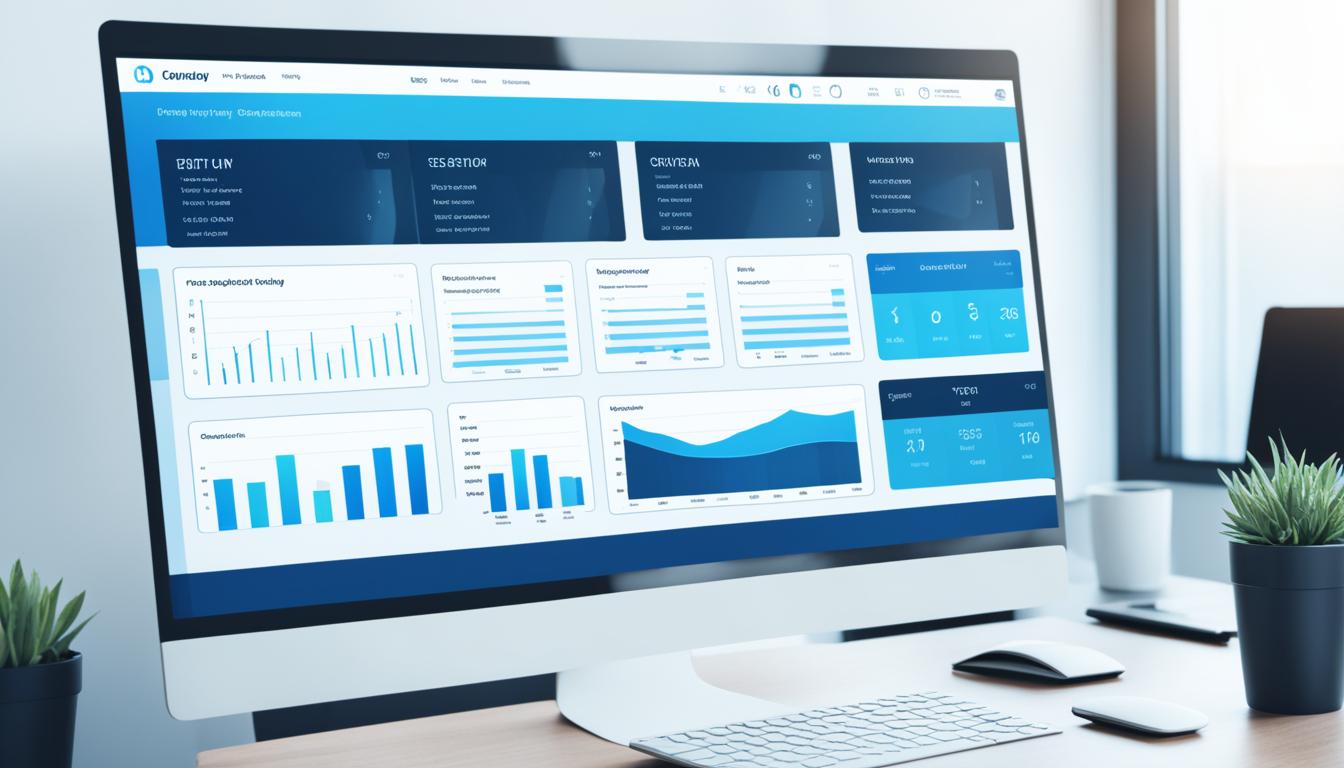In today’s digital age, efficient management systems are crucial for the success of any business. And when it comes to law firms, the right ERP (Enterprise Resource Planning) system plays a vital role in ensuring optimal efficiency and streamlined operations.
At Our Law Firm Solutions, we understand the importance of selecting the best ERP system tailored to the unique needs of your law firm. In this section, we will discuss the factors to consider and the benefits of implementing an ERP system that aligns with your firm’s requirements.
Factors to consider when choosing an ERP system for your law firm
When it comes to selecting an ERP system for your law firm, there are several important factors to consider. By carefully evaluating these factors, you can ensure that you choose the right system that meets the unique needs and requirements of your firm, ultimately improving efficiency and effectiveness in your operations.
Specific requirements and functionalities: A crucial factor in choosing an ERP system is identifying the specific requirements and functionalities that are essential for law firms. This includes features such as case management, document management, time tracking, billing, and financial reporting. By understanding your firm’s specific needs, you can prioritize these functionalities and select a system that aligns with your requirements.
Scalability: As your law firm grows and evolves, it’s important to have an ERP system that can scale along with your business. Look for a system that has the flexibility to accommodate an expanding client base, increasing transaction volumes, and additional functionalities that may be required in the future.
Integration capabilities: Seamless integration with other software applications is crucial for optimal efficiency in your law firm. Consider whether the ERP system can integrate with existing software solutions such as accounting programs, document management systems, or e-discovery tools. This will ensure smooth data flow and eliminate the need for manual data entry, saving valuable time and reducing the risk of errors.
User-friendliness: The usability and ease of navigation of an ERP system are essential for user adoption and productivity. Look for a system that has an intuitive interface, clear navigation, and customizable dashboards. User-friendly ERP systems reduce the learning curve and empower your staff to leverage the system effectively.
Data security: As a law firm, safeguarding sensitive client information is of paramount importance. Ensure that the ERP system you choose has robust security measures in place to protect data from unauthorized access, breaches, or other cyber threats. This includes features such as data encryption, access controls, and regular system updates.
By considering these factors and evaluating different ERP systems based on your law firm’s specific needs, you can make an informed decision that will optimize your firm’s efficiency, streamline processes, and enhance your overall performance.
Case Study: Law Firm XYZ
To illustrate the significance of choosing the right ERP system, let’s take a look at a real-world example. Law Firm XYZ recognized the need for a comprehensive ERP system to streamline their operations and improve collaboration among team members. After careful consideration of the factors mentioned above, they decided to implement an ERP solution specifically designed for law firms.
The chosen ERP system provided seamless integration with their existing document management system, eliminating the need for duplicate data entry and ensuring data accuracy. It also offered advanced case management functionalities, allowing the firm to efficiently track and manage cases, deadlines, and client-related tasks.
With the new ERP system in place, Law Firm XYZ experienced significant improvements in efficiency and productivity. The system’s user-friendly interface allowed their staff to quickly adapt and embrace the new solution. Real-time access to relevant case and client information enhanced collaboration and enabled the firm to deliver exceptional client service.
Moreover, the ERP system implemented robust data security measures, safeguarding the firm’s sensitive client data and protecting against potential cyber threats. This instilled confidence in both the firm and its clients, ensuring compliance with industry regulations and ethical standards.
In conclusion, Law Firm XYZ’s careful selection of the ERP system based on the critical factors mentioned above resulted in measurable improvements in their day-to-day operations, client service, and overall success.

Stay tuned for the next section where we will discuss the benefits of implementing the right ERP system for your law firm.
Benefits of implementing the right ERP system for your law firm
Implementing the right ERP system can bring numerous benefits to your law firm. Firstly, it improves operational efficiency by automating repetitive tasks and streamlining processes. This not only frees up valuable time for your team but also ensures optimal efficiency in every aspect of your firm’s operations.
Enhanced collaboration among team members is another advantage of an ERP system. By providing a centralized platform for sharing information and communicating, it facilitates seamless communication and coordination among different departments and individuals. This leads to improved teamwork, productivity, and ultimately, better client service.
An ERP system also empowers decision-making with real-time insights. Through integrated reporting and analytics features, you can access up-to-date data and generate meaningful reports that enable informed decision-making. This helps you keep a pulse on your firm’s performance metrics and make data-driven decisions to fuel growth and success.
Furthermore, implementing an ERP system ensures compliance with legal regulations. With built-in security features, document management capabilities, and audit trails, you can maintain data integrity, confidentiality, and compliance with industry-specific regulations and privacy laws. This helps your firm build trust with clients and avoid potential legal and reputational risks.


No responses yet